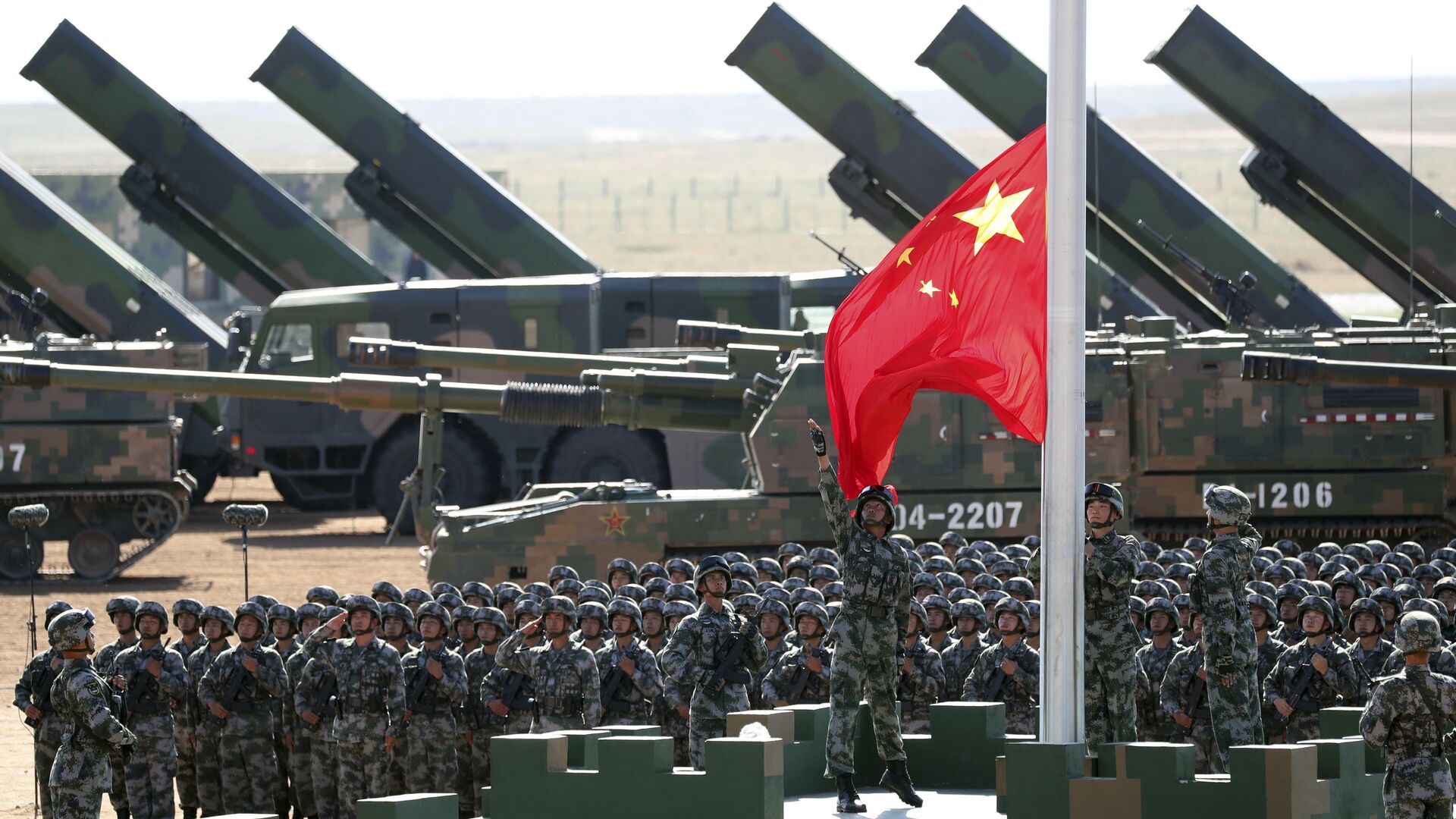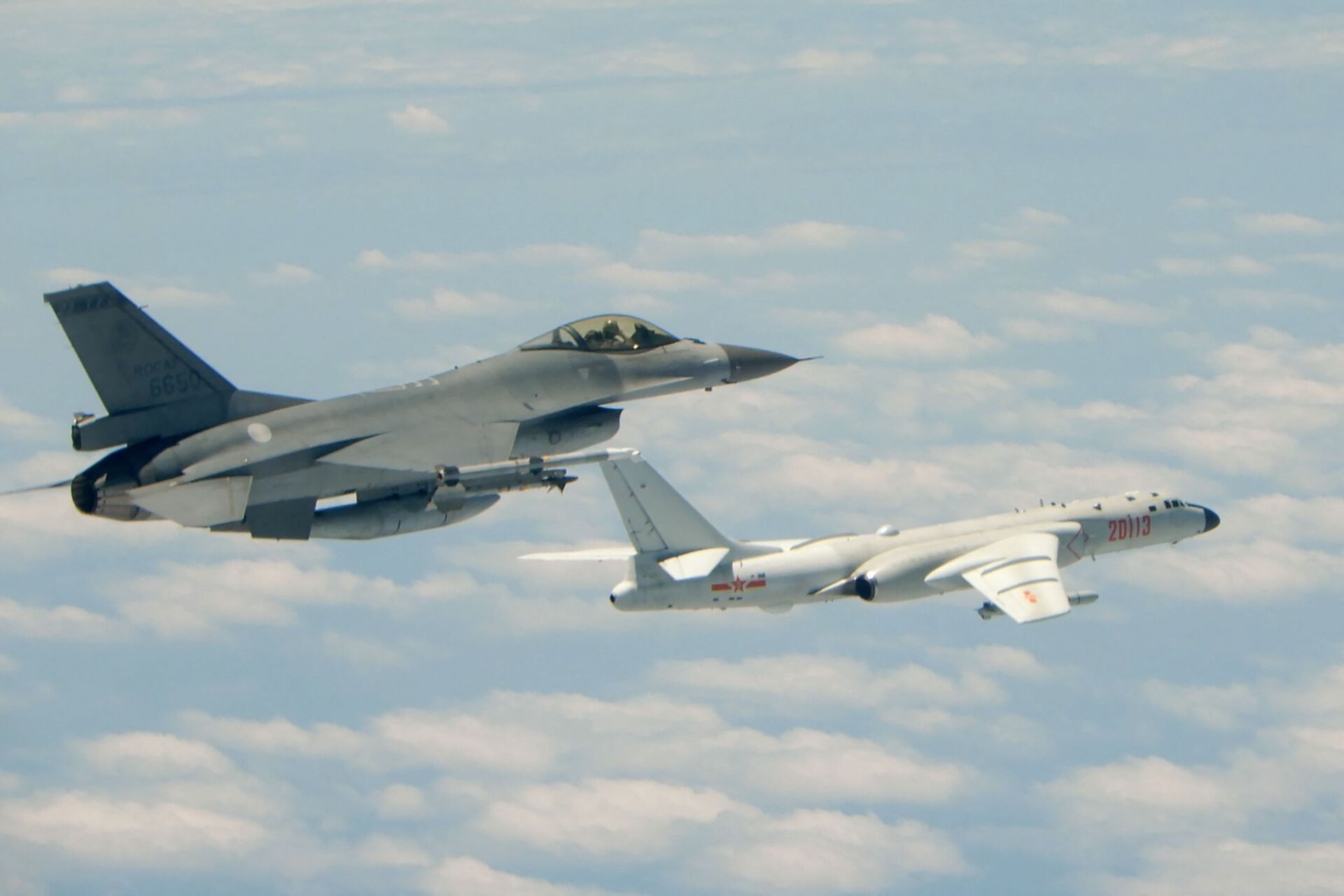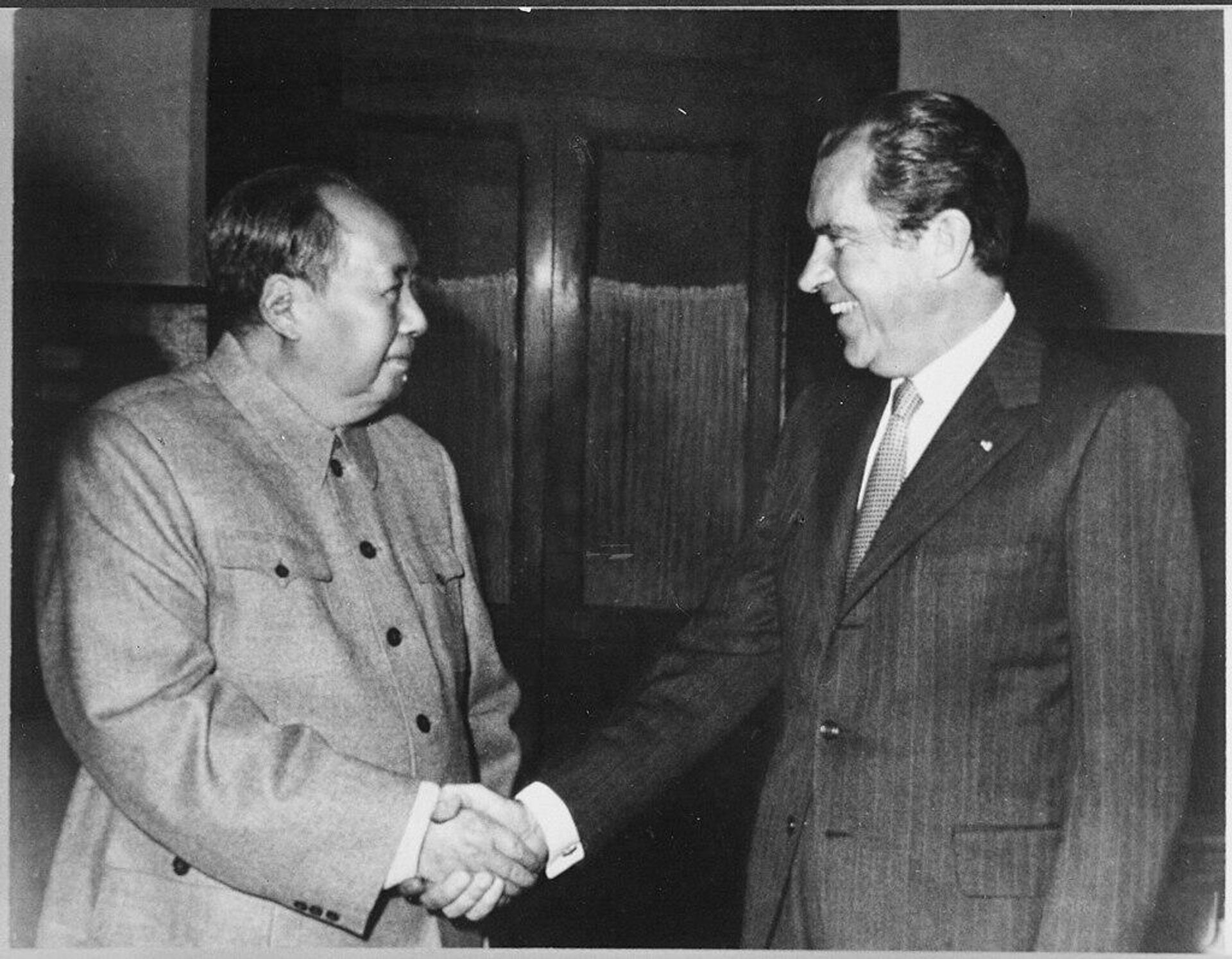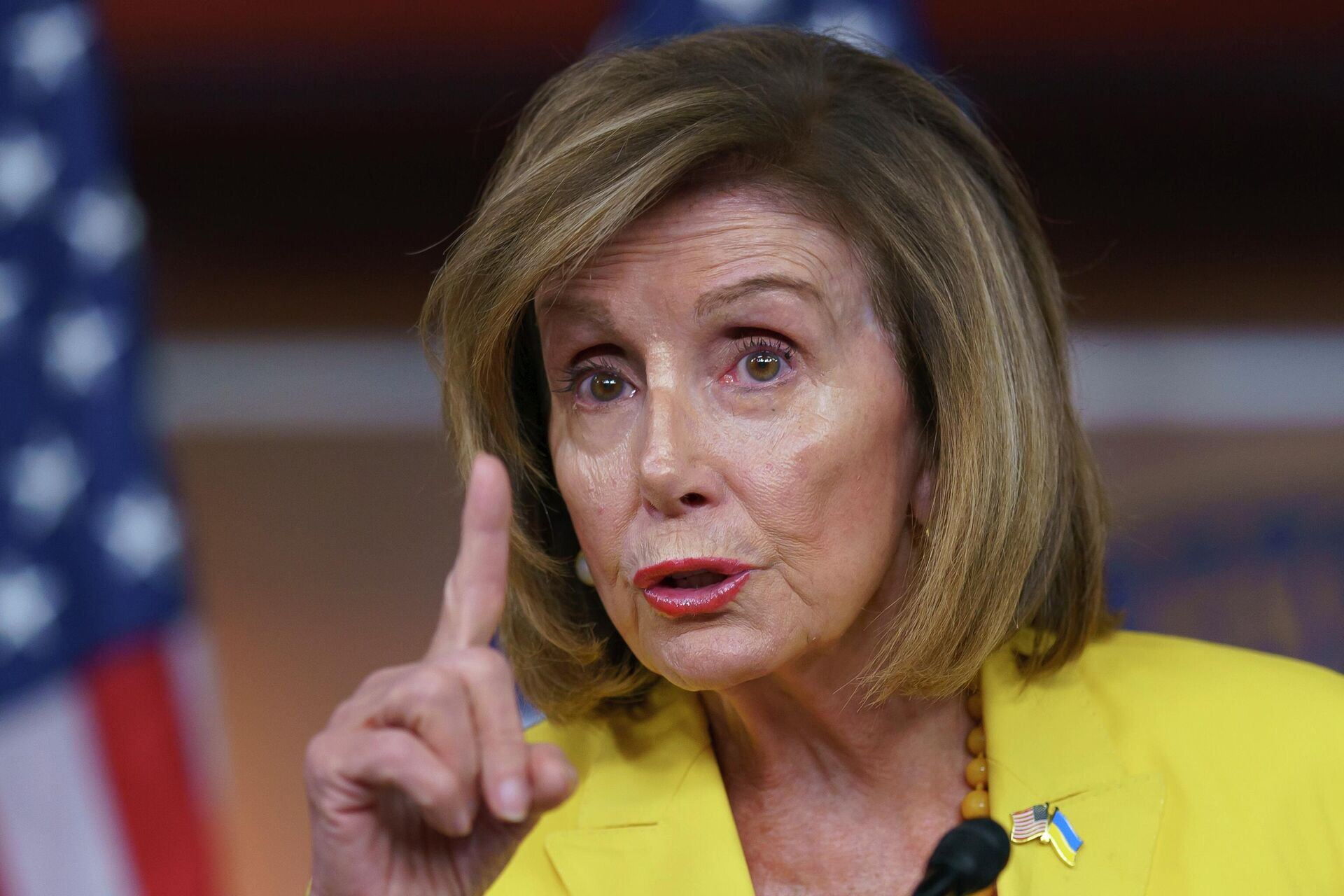Pelosi Provocation Over Taiwan Leads US, World Into Age of Disorder And Instability: Martin Jacques
10:27 GMT 02.08.2022 (Updated: 12:44 GMT 19.06.2023)

© AP Photo / Pang Xinglei/Xinhua
Subscribe
Donald Trump's election as US president in November 2016 marked the end of over four decades of relative stability in US-China relations. Ever since, it has been downhill all the way with barely a pause.
Five years have passed and we have seen two US presidents. It would be an exaggeration to suggest that relations are in freefall, but the relationship is patently now unhinged. Predictability has been replaced by uncertainty. Trust has evaporated. It is impossible to predict what the state of the relationship will be after the US congressional elections in November, or after the next presidential election in 2024.
The huge uncertainty surrounding the much-mooted visit by Nancy Pelosi to Taiwan this week summed up the present highly charged and intensely volatile nature of US-China relations. It is a salutary fact that neither President Xi Jinping nor even President Joe Biden knew whether that visit would actually go ahead.
This is a very dangerous situation. The relationship has lost all predictability. Where previously the US-China relationship was based on a well-established and deep mutual understanding and respect for each other's position, now there is very little, at times seemingly none.

This handout photograph taken and released on May 11, 2018 by Taiwan's Defence Ministry shows a Republic of China (Taiwan) Air Force F-16 fighter aircraft (L) flying alongside a Chinese People's Liberation Army Air Force (PLAAF) H-6K bomber that reportedly flew over the Bashi Channel, south of Taiwan, and over the Miyako Strait, near Japan's Okinawa Island, in a drill
© AFP 2023 / HANDOUT
The guardrails that prevented the relationship suddenly swerving off course are no longer in place, as we have seen so dramatically over the last week or so.
What makes the situation even more dangerous, frightening in fact, is the growing power vacuum in the US. Biden, up until the last minute, did not appear to know whether fellow-Democrat Pelosi would go to Taiwan. As we have seen, on two different occasions his aides intervened to reassure the media that had to reinterpret his suggestion that the US would come to Taiwan's defence in the event of Chinese military action.
It is impossible to predict who might be US president in 2024. It is not difficult, for example, to imagine the return of Trump or someone even worse. Meanwhile, driving the process of polarisation and fragmentation in the US is American decline. It is this, above all, which is responsible for the growing breakdown of the global order.
We have entered the age of disorder and instability, both in the US itself and, of course, in the wider world. It represents a mortal threat to global peace. In just a few short years, the language of war, conquest and conflict has replaced the language of cooperation and peace. The idea of war is becoming progressively normalised. That means there is a rising likelihood of it actually happening.
It is no accident that the flashpoint is Taiwan. One of Trump's first actions as president was to take a call from Tsai Ing-wen, the first time since 1979 that a US president had spoken with a Taiwanese regional leader. He even began to question the One-China policy, although he was dissuaded from pursuing this by wiser heads.

Chinese leader Mao Zedong and US President Richard Nixon shake hands in Beijing on February 21, 1972
One of the great achievements of the Nixon-Mao rapprochement was a series of understandings that for the next 40 years would inform and underpin the US-China relationship on Taiwan question. Once the US-China relationship began to unravel after 2016, it was inevitable that Taiwan question would once again become a hot-button issue.
For China, nothing is more important than the return of the lost territories and the reunification of China. For China this is an existential question. Notwithstanding this, the PRC has shown great patience ever since the illegal occupation of the island by Chiang Kai-shek in 1949. Mao made it clear to Kissinger that China would be patient providing the One-China policy was strictly observed and the Taiwanese government did not declare independence. According to Kissinger, Mao said, "We can do without Taiwan for the time being, and let it come after 100 years."
Over the last five years the US has been encroaching on these understandings by increasing weapon sales to Taiwan, boosting military patrols in the region, and giving diplomatic backing to the island through visits by US politicians.
A visit by Pelosi, the speaker of the House of Representatives, would raise the bar of provocation. Not since 1997 has an American of her stature visited the island. If Pelosi, then what or who next? A pattern is steadily taking shape. As the relationship between China and the US becomes increasingly unpredictable, Taiwan has become by far the most dangerous source of tension and conflict.

FILE - Speaker of the House Nancy Pelosi, D-Calif., talks with reporters ahead of a planned vote in the House that would inscribe the right to use contraceptives into law, a response to the conservative Supreme Court, at the Capitol in Washington on July 21, 2022
© AP Photo / J. Scott Applewhite
The Pelosi visit must not go ahead. It will serve only to raise tensions, increase suspicions, and heighten the danger of a military conflict. But even if the visit does not proceed, it will not halt the incipient process of escalation. The two countries need to reaffirm the basic principles of their long-held and shared understanding over Taiwan.
The danger of a military conflict over Taiwan is now far greater than at any time since the 1970s. Any such conflict would be far more serious than if it had happened previously because China is now the equal of the US and a far more formidable military adversary. It is a conflict that both sides must seek to avoid at all costs.
The author was until recently a senior fellow at the Department of Politics and International Studies at Cambridge University. He is a visiting professor at the Institute of Modern International Relations at Tsinghua University and a senior fellow at the China Institute, Fudan University.
This article was originally published by the Global Times.



